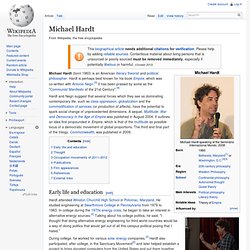

Internet Encyclopedia of Philosophy. Ludwig Wittgenstein. 1.

Biographical Sketch Wittgenstein was born on April 26, 1889 in Vienna, Austria, to a wealthy industrial family, well-situated in intellectual and cultural Viennese circles. In 1908 he began his studies in aeronautical engineering at Manchester University where his interest in the philosophy of pure mathematics led him to Frege. Upon Frege's advice, in 1911 he went to Cambridge to study with Bertrand Russell. Russell wrote, upon meeting Wittgenstein: “An unknown German appeared … obstinate and perverse, but I think not stupid” (quoted by Monk 1990: 38f). During his years in Cambridge, from 1911 to 1913, Wittgenstein conducted several conversations on philosophy and the foundations of logic with Russell, with whom he had an emotional and intense relationship, as well as with Moore and Keynes. In the 1930s and 1940s Wittgenstein conducted seminars at Cambridge, developing most of the ideas that he intended to publish in his second book, Philosophical Investigations. 2. 3.
Paul Virilio. Paul Virilio (born 1932) is a French cultural theorist and urbanist.

He is best known for his writings about technology as it has developed in relation to speed and power, with diverse references to architecture, the arts, the city and the military. Biography[edit] Since 1998, Virilio is only teaching intensive seminars at European Graduate School.[1] His latest projects involve working with homeless groups in Paris and building the first Museum of the Accident. Theoretical arguments[edit] The war model[edit] Virilio's predictions about 'logistics of perception' - the use of images and information in war - (in War and Cinema, 1984) were so accurate that during the Gulf War he was invited to discuss his ideas with French military officers. The integral accident[edit] Virilio believes that technology cannot exist without the potential for accidents.
Dromology[edit] ‘Dromos’ is the Greek noun for road, but Virilio takes it to mean the activity of race (Virilio 1977:47). War of movement[edit] Marshall McLuhan. Slavoj Zizek. Slavoj Žižek, Ph.D., is a senior researcher at the Institute of Sociology, University of Ljubljana, Slovenia, and a visiting professor at a number of American Universities (Columbia, Princeton, New School for Social Research, New York University, University of Michigan).

Slavoj Žižek recieved his Ph.D. in Philosophy in Ljubljana studying Psychoanalysis. He also studied at the University of Paris. Slavoj Žižek is a cultural critic and philosopher who is internationally known for his innovative interpretations of Jacques Lacan. Slavoj Žižek has been called the ‘Elvis Presley’ of philosophy as well as an 'academic rock star'. He is author of The Indivisible Remainder; The Sublime Object of Ideology; The Metastases of Enjoyment; Looking Awry: Jacques Lacan through Popular Culture; The Plague of Fantasies; and The Ticklish Subject. Slavoj Žižek was born into a family of average wealth, his father Jože Žižek grew up in eastern Slovenia and worked in economics.
Michael Hardt. Early life and education[edit] During college, he worked for various solar energy companies.[2] Hardt also participated, after college, in the Sanctuary Movement[2] and later helped establish a project to bring donated computers from the United States and put them together for the University of El Salvador.

Yet, he says that this political activity did more for him than it did for the Salvadorans.[2] In 1983, he moved to Seattle to study comparative literature at the University of Washington.[2] While there, he received an M.A. in 1986 and his PhD in 1990.[5] From there he went to Paris where he would meet Negri. Kwame Anthony Appiah. Home. Cornel West. Avital Ronell.